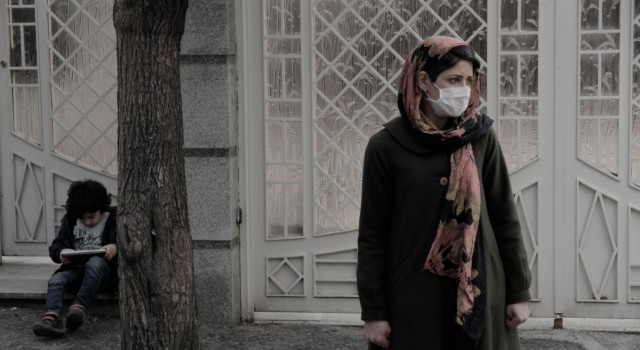I have a terrible memory and countless great short films have fallen through the cracks of my fractured hippocampus over the years. Every once in a while though, an exceptionally riveting triumph of short-form storytelling comes along and leaves its permanent mark both on my memory and my life. Funfair, by Kaveh Mazaheri is one of them. Being a huge fan of the Iranian director’s Oscar short-listed previous short Retouch, I distinctly remember the moments before I watched Funfair for the very first time. I imagine that the exhilaration and excitement I felt could only be matched by what the person who held the USB stick containing Jafar Panahi’s This Is Not a Film must’ve felt, when the director famously smuggled it out during his house arrest. And sure enough, Mazaheri did not disappoint.
Exploring issues like the harsh Iranian economic conditions and class divide, and more pointedly gender and familial roles, Funfair evokes an entire spectrum of emotions. Disbelief, moral ambiguity, fear, amusement and heartbreak coexist together in perfect disharmony within every single scene of this cleverly crafted masterpiece. Largely thanks to the impressive central performances by Sonia Sanjari (Retouch) and Soroush Saeidi (who went on to star in Mazaheri’s debut feature Botox), watching Funfair is an uneasy experience during which you can never be sure if you’re witnessing a heartwarming tragedy or a harrowing comedy. The 15-minute film stands out with quiet authenticity and continuously delivers gut-punching surprises until the very end, cementing it as an unforgettable story and an instant classic.

Funfair sees Kaveh Mazaheri direct Sonia Sanjari once again, after the pair worked together on Retouch.
The film opens on a striking scene – the back of a woman standing on the edge of a busy street as speeding cars whiz by, far too close to her small and vulnerable frame. The ominous score warns that something bad might be about to happen, and just when she looks like she’s on the verge of jumping to her death, a man grabs her and pulls her back to safety. We soon find out that the two are actually married and in the midst of testing out a risky plan devised by Majid, which, with the help of his wife Sarah, is meant to pay off their family’s debts. Sarah, however, has her doubts, whilst their young son Artin just wants to go to the funfair in the city.
“I am the narrator of my own life experience”
Comparing Mazaheri to the legendary Iranian film directors, or Funfair to the rich and abundant tradition of the Iranian cinema is beyond the scope of this article and is, furthermore, unnecessary. As Mazaheri himself explained in an interview with S/W – “My life experience is totally different from filmmakers such as Kiarostami, Beizaee, Panahi, Mehrjui and Farhadi. I think I am the narrator of my own life experience, as they were the narrators of their own experience and viewpoint. My life experience is made up of love and hate, extreme violence in society with extreme kindness, censorship with fear and striving for freedom, and many other conflicting dualities. I’ve always tried to have these dichotomies in my films.”
It’s the careful balance of conflicting emotions that makes Funfair such an exhilarating short. The film cuts through the desperation and tragedy of its characters and their circumstances, but the filmmaking tools are blunt and so they are never too obviously wretched or despairing. There are no tears or heated arguments, no drama. Every conversation between the plotting couple is measured and kind, and even when they’re discussing the possibility of one of them dying, they still find ways to laugh together. The overwhelming weight of what they’re about to do and the alarming reasons behind them doing it in the first place is lifted because of the love they clearly have for their sacred family unit, making the experience of watching their story unfold all the more heartbreaking.
But it’s the ending that makes Funfair truly unforgettable. Shocking and thought-provoking, it will undoubtedly leave nearly all shaken and pondering the nature and consequences of violence and injustice. With this final gut-punch, Mazaheri has proven, once again, that he is not only a filmmaker to watch and admire but also one to learn from.

 Serafima Serafimova
Serafima Serafimova